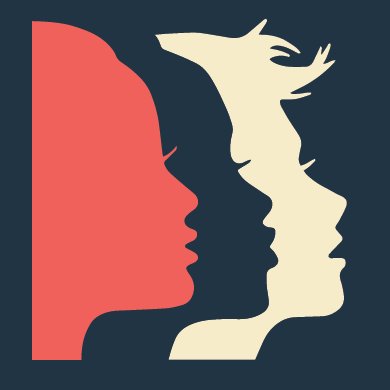The Women’s March on Washington is expecting over 200,000 participants in Washington, D.C.. this Saturday, January 21st with almost 300 sister marches in cities across the country. I will be joining the Women’s March in downtown San Diego, California, rain or shine. Here’s why.
First, because tomorrow Donald Trump will become my country’s President, and I can’t just stay home on Saturday morning when women in my community are gathering to protest his dehumanizing rhetoric. Now, more than ever, I need to stand in solidarity with my sisters. The Women’s March platform affirms:
We believe Gender Justice is Racial Justice is Economic Justice. We must create a society in which women, in particular women—in particular Black women, Native women, poor women, immigrant women, Muslim women, and queer and trans women—are free and able to care for and nurture their families, however they are formed, in safe and healthy environments free from structural impediments.
The organizers of the Women’s March note that women have intersecting identities. Our struggles are interconnected. And the struggles are real. The platform names some of these struggles:
One in three women have been victims of some form of physical violence by an intimate partner within their lifetime; and one in five women have been raped. Further, each year, thousands of women and girls, particularly Black, indigenous and transgender women and girls, are kidnapped, trafficked, or murdered…. The rate of imprisonment has grown faster for women than men, increasing by 700% since 1980, and the majority of women in prison have a child under the age of 18…
Sexism continues to persist in U.S. institutions, and it is deeply intertwined with other pernicious –isms: racism, classism, ableism, nativism. There has been progress but we have much work to do. And we cannot do it alone. We need to collaborate across religious communities and identities of race, class, and culture.
Second, because the personal is political. Second-wave feminists have long written about the need for women to organize because the issues women face are not just ‘personal’ issues that they need to wrestle with alone, in the context of their ‘private’ life. The Women’s March platform specifically names criminal justice, reproductive justice, LGBTQIA rights, elimination of workplace discrimination, workers’ rights, voting rights, and immigration reform as key issues deserving of national attention and women’s activism. It is an ambitious list of goals but much aligns explicitly with Catholic social teachings.
Some Catholic feminist groups have expressed their disappointment in the Women’s March platform this week, noting that a pro-life feminist viewpoint was not included in the platform and pro-life feminist groups were not listed as sponsors. I understand their point of view, and think that Charlie Camosy has helpfully pointed out on this blog that the binary labels of “pro-choice” and “pro-life” do not reflect the complexity of Americans’ views on abortion. While space does not permit a lengthy analysis here, let me just say that I do not celebrate abortion as a moral good. I believe that we will be succeeding as a country when women facing unplanned pregnancies do not feel that abortion is their only alternative. I believe we should continue to work towards reducing the perceived need for abortions. Comprehensive, values-based, sex-positive sex education should be the norm, not the exception. But I am also deeply suspicious of any answer by powerful male leaders that strips women of their agency. I would rather we adopt a method of accompaniment, as described by Pope Francis, in which we walk with women in their time of trauma and uncertainties. Women should be treated as fully human subjects. Women’s rights are human rights. I know that I will be walking alongside women on Saturday who have different viewpoints on abortion, but that is ok. We will need to continue to seek common ground and there are so many issues that we can work together on even if disagreements remain regarding the thorny, complex issue of abortion.
Third, because I am a free woman. “Woman, you are set free.” (Luke 13:10-13). When theologian Elizabeth Johnson reflects on the story of Jesus healing a woman who had been crippled for 18 years, she invites us to put ourselves in her shoes:
Imagine how it felt to stand up straight, to lift up her head, to look around and see faces instead of the ground. A new way of life opens up before her (Abounding in Kindness, 215).
Johnson goes on:
Women scholars are discovering that there are many scenes like this in the New Testament that show Jesus’ love for women, his concern for their well-being, and his freeing effect on their lives… Theology in women’s hands has discovered Jesus Christ as compassionate friend, liberator from burdens, consoling friend in sorrows, and ally of women’s strivings. He brings salvation through his life and Spirit, supporting women’s efforts to realize how beloved they are in the eyes of God. The blessing that women find in their relationship with Jesus is not simply private and spiritual, though it is certainly that. But it also affects their life in public and social domains, inspiring the struggle for liberation from structures of domination in every dimension of life.
My faith compels me to march in the streets, to become part of the struggle for liberation from structures of domination. I confess that I have been guilty of the sin of apathy. I was too often complacent in the past year, and for that I am truly sorry. I will be joining the march on Saturday to build my body’s immunity to the rhetoric of greed, narcissism, and intellectual blindness. I am marching to say that there is a better way. I am marching to tell the other women there that they are not alone. I am marching to symbolize my own response to Jesus telling me to “Arise.” I hope that young women marching on Saturday will look around them, seeing the diversity of women and men present, and feel that they can stand up straight, lift their heads, look around, and feel new life opening up within them. Rise up, women. The march is on.






Trackbacks/Pingbacks